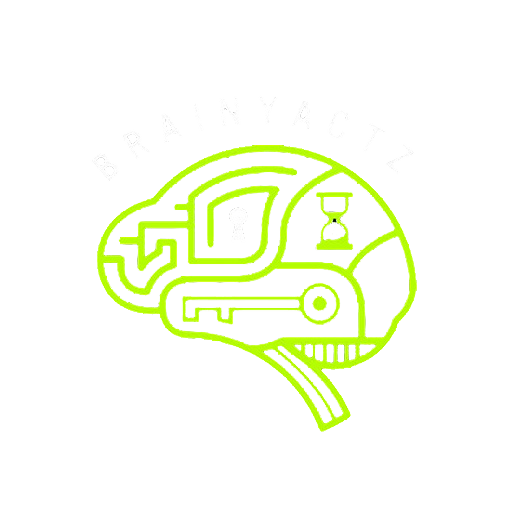Corporate retreats have evolved beyond traditional settings like Mexico or Montana, with innovative companies now incorporating escape room experiences into their wellness and team-building activities. These immersive challenges provide a unique opportunity for software teams to collaborate, problem-solve, and bond in ways that traditional corporate retreats often fail to achieve. Escape rooms offer a fresh approach to fostering teamwork and enhancing communication skills among colleagues. In this article, we’ll explore how escape rooms are revolutionizing corporate retreats and providing a dynamic platform for team building.
Keep reading to discover how your company can leverage this exciting trend to boost morale and productivity.
Key Takeaways
- Escape rooms transform corporate retreats into engaging experiences that foster collaboration and reveal hidden talents
- Customized escape room challenges reinforce company values and align with organizational goals
- Proper difficulty levels ensure inclusivity and maximize team participation in escape room activities
- Case studies demonstrate how escape rooms improve communication, problem-solving, and leadership skills across industries
- Post-retreat strategies help maintain momentum and integrate escape room insights into daily workplace operations
Unleashing Team Potential With Escape Rooms

Escape rooms offer a unique opportunity to transform corporate retreats from mundane gatherings into exhilarating experiences that rival the excitement of summer camp activities. Unlike traditional team-building exercises such as karaoke or sports events, these immersive challenges push employees to their limits, revealing hidden talents and fostering collaboration. A skilled facilitator can harness the power of escape rooms to boost employee morale, identify natural leaders, and strengthen team bonds. As participants work together to solve intricate puzzles under time pressure, they develop essential skills that translate directly to the workplace.
Identifying Team Strengths Through Puzzle-Solving
Escape rooms offer unique challenges that highlight the natural strengths of each staff member. As teams navigate puzzles, individuals can showcase their problem-solving skills, leadership qualities, and ability to work under pressure. This dynamic environment mirrors the fast-paced nature of many workplaces, providing valuable insights into team members’ performance in high-stakes situations. Critical thinkers excel in analyzing complex clues, natural leaders coordinate group efforts, creative minds propose innovative solutions, detail-oriented individuals spot hidden patterns, and communicators ensure effective information sharing.
Encouraging Leadership Skills in High-Pressure Scenarios
Escape rooms place teams in high-pressure situations that mirror workplace challenges, naturally fostering leadership skills. As the clock ticks, individuals step up to lead their team through complex puzzles, similar to how executives navigate corporate obstacles. This immersive experience turns a fun activity into a powerful tool for leadership development. The art of leadership emerges as participants coordinate efforts, delegate tasks, and inspire peers to achieve a common goal. Key leadership skills developed include decision-making, with participants prioritizing puzzles, communication through sharing clues and ideas, and adaptability as they adjust strategies with new information.
Building Trust Through Collaborative Challenges
Escape rooms foster trust among team members through shared challenges that surpass traditional corporate retreats activities like tennis or cocktail hours. In San Diego, businesses have embraced these immersive experiences as a fresh alternative to conventional team-building exercises, finding them more engaging than standard catering events. As colleagues work together to decipher clues and solve puzzles, they develop a deeper sense of trust and reliance on one another’s strengths, creating bonds that extend far beyond the confines of the escape room.
Measuring the Impact of Escape Rooms on Team Dynamics

Escape rooms offer a unique opportunity to gauge team dynamics and measure the impact of corporate retreats on employee morale. In the San Francisco Bay Area, where corporate travel often revolves around Silicon Valley’s tech-driven culture, these immersive challenges provide a fresh perspective on productivity and team cohesion. By implementing pre-retreat assessments, observing behavioral changes during the escape room experience, and gathering post-retreat feedback, companies can gain valuable insights into their team’s collective mind and performance. This data-driven approach allows organizations to quantify the morale boost and evaluate the effectiveness of escape rooms as a team-building tool in the competitive corporate landscape.
Pre-Retreat Assessments to Gauge Team Cohesion
Before embarking on group travel for a corporate retreat, conducting pre-retreat assessments provides valuable insights into team cohesion and employee engagement. These evaluations measure the current state of soft skills within the team, such as communication, trust, and collaboration. By establishing this baseline, companies can tailor their escape room experiences to address specific areas for improvement, ensuring that the retreat not only boosts morale but also enhances the overall health of team dynamics among teammates.
Observing Behavioral Changes During Escape Room Challenges
Corporate teams reveal their true colors when faced with the high-stakes environment of an escape room challenge. As the clock ticks down, observers can witness a surge of energy that transforms quiet finance analysts into vocal problem-solvers or reserved marketing specialists into natural leaders. This intense experience, often set in a resort-like atmosphere, fosters a sense of community that transcends typical office boundaries, allowing managers to identify hidden talents and address team dynamics in real time.
Post-Retreat Feedback to Understand the Morale Boost
Post-retreat feedback offers invaluable insights into the morale boost achieved through escape room experiences during executive retreats. Remote teams, in particular, benefit from the shared adventure, with surveys revealing increased camaraderie and improved communication long after the event. Retreat venues that combine escape room challenges with spa amenities create a perfect balance, allowing teams to unwind and reflect on their experiences. This feedback often sparks innovative brainstorming sessions, leading to enhanced productivity and team cohesion back in the workplace.
Planning the Perfect Escape Room Experience for Your Team

Crafting the perfect escape room experience for a corporate retreat requires careful planning to maximize its impact on team morale. Every detail matters, from choosing a suitable venue to setting clear goals for the event. Organizers must select the right difficulty level to challenge and engage all team members, integrate the escape room activities with other retreat elements, and ensure logistics and safety are well-managed. A well-executed escape room can turn a corporate getaway into a memorable team-building event, where colleagues bond over shared successes and celebrations, fostering camaraderie that lasts beyond the retreat.
Choosing the Right Difficulty Level for Maximum Inclusivity
Selecting the right difficulty level for an escape room experience is crucial for ensuring inclusivity, making it a powerful team-building exercise during a corporate retreat. Organizers must balance challenging seasoned problem-solvers while also accommodating those less experienced with puzzles. This approach creates a unifying activity that suits teams adjusting to remote work dynamics. A carefully chosen difficulty level encourages participation from all members, fostering a sense of shared accomplishment. Beginner-friendly puzzles build confidence, intermediate challenges promote collaboration, advanced elements push high-performers, and varied difficulty levels cater to diverse skill sets, with adaptive difficulty adjusting to team progress.
Integrating Escape Room Activities With Other Retreat Elements
Corporate retreats increasingly combine escape room challenges with traditional activities to enhance mental health and team cohesion. This holistic approach caters to diverse employee needs and preferences, offering a balanced experience. For example, retreats in Miami might pair puzzle-solving with beachside relaxation, while those in Colorado could integrate mountaineering with escape scenarios. Such combinations provide a variety of experiences, from tropical mysteries and beach yoga to mountain rescues and hiking excursions, all aimed at fostering team bonding and well-being.
Logistics and Safety Considerations for a Seamless Event
Organizing a seamless escape room event involves careful attention to logistics and safety. Event management teams must align the event with corporate culture while prioritizing participant well-being. Key steps include conducting pre-event safety inspections, briefing participants on emergency procedures, and ensuring the venue meets high safety standards. Adequate supervision staffing, proper equipment and safety gear, and a clear chain of command for decision-making are essential for mitigating risks and ensuring a safe, enjoyable experience.
Next Steps After an Escape Room Retreat

The exhilaration of conquering an escape room challenge at a corporate retreat doesn’t end when teams return to the office. Savvy management recognizes that the real work begins after the event, as they strive to apply lessons learned and maintain the momentum generated during the experience. Whether the retreat occurred at a luxurious venue like Cedar Lakes Estate or on a sun-drenched volleyball court in Los Angeles, the key lies in translating those shared moments into lasting improvements. By implementing regular team-building activities, tracking long-term effects on morale and productivity, and applying newfound insights to daily operations, companies can extend the benefits of their escape room adventure far beyond the initial thrill of solving puzzles on a manicured lawn.
Applying Lessons Learned to the Workplace
Companies leverage escape room insights to develop actionable workplace strategies through workshops and team-building exercises. HR departments organize follow-up sessions where employees discuss applying puzzle-solving techniques to improve project management or using communication skills honed during the retreat in client interactions. Some firms integrate these lessons into regular routines, such as replacing a weekly meal with a mini escape room challenge or adding problem-solving elements to outdoor activities like archery or hiking. This approach ensures the retreat’s team-building benefits continue influencing daily operations, fostering a culture of collaboration and innovation.
Continuing Team Development With Regular Activities
Companies maintain the momentum of escape room retreats by implementing regular team-building activities in their office spaces. These collaborative exercises, ranging from mini-puzzles to virtual escape room challenges, foster ongoing network-building and problem-solving skills. HR departments often coordinate these events, recognizing their positive impact on employee retention and overall team dynamics while carefully managing logistics to ensure minimal disruption to daily operations.
Tracking Long-Term Effects on Team Morale and Productivity
Companies assess the long-term effects of escape room retreats on team morale and productivity through data analysis and qualitative feedback. HR departments conduct regular surveys, comparing performance metrics before and after the retreat. Some organizations incorporate follow-up activities like fishing trips or meditation sessions, allowing teams to reflect on their growth and engage in strategic planning. These varied approaches offer valuable insights into the lasting impact of escape room challenges on team dynamics and overall productivity, including improved collaboration, reduced burnout rates, and increased innovation.
Conclusion
Escape rooms offer a powerful tool for corporate retreats, transforming mundane gatherings into exhilarating experiences that foster collaboration, leadership, and trust among team members. These immersive challenges reveal hidden talents, encourage problem-solving skills, and provide valuable insights into team dynamics that translate directly to the workplace. By customizing puzzles to match company values and incorporating corporate goals into escape room scenarios, businesses can reinforce their organizational culture while providing employees with an engaging and memorable experience. The long-term benefits of escape room retreats extend beyond the event itself, as companies apply lessons learned to daily operations, continue team development through regular activities, and track improvements in morale and productivity over time.

